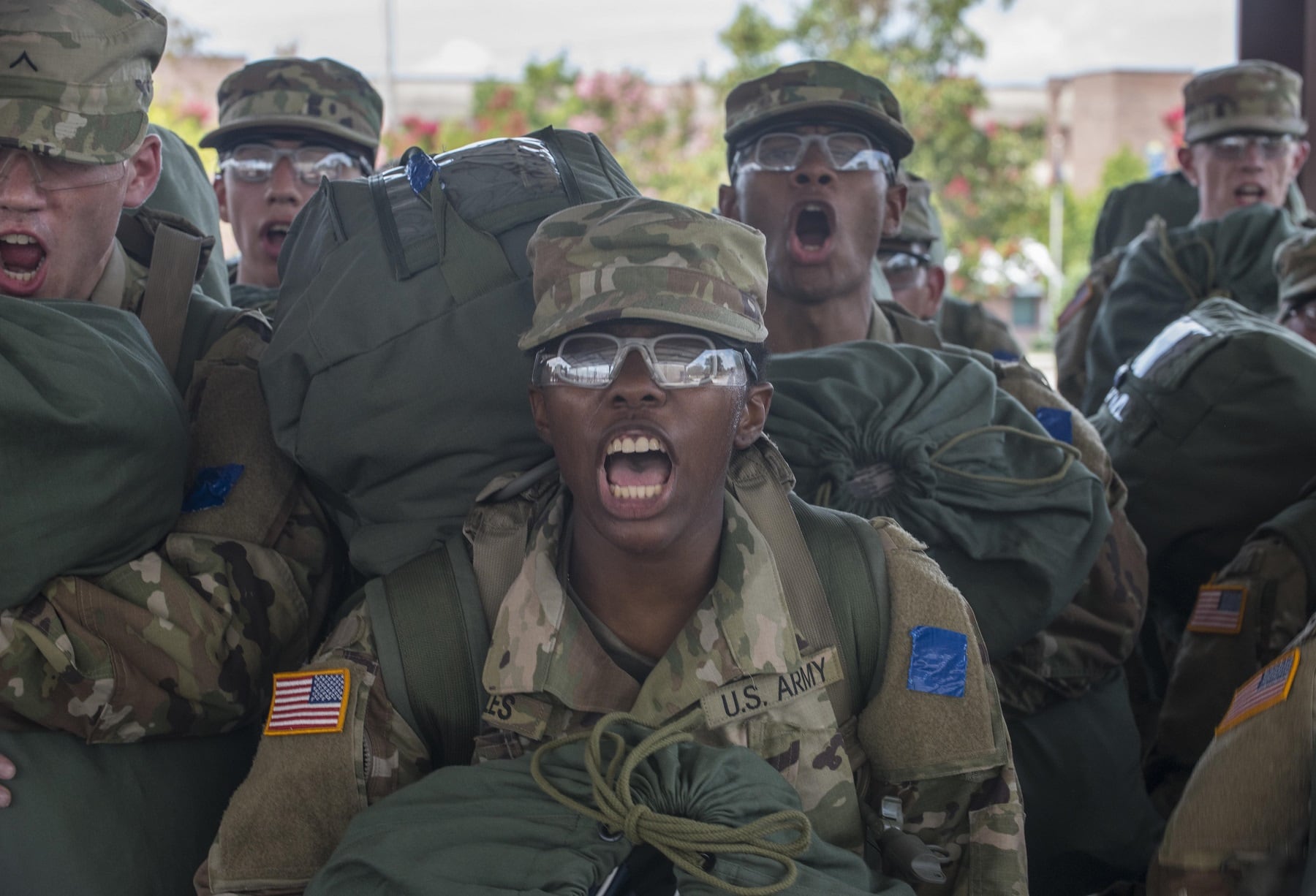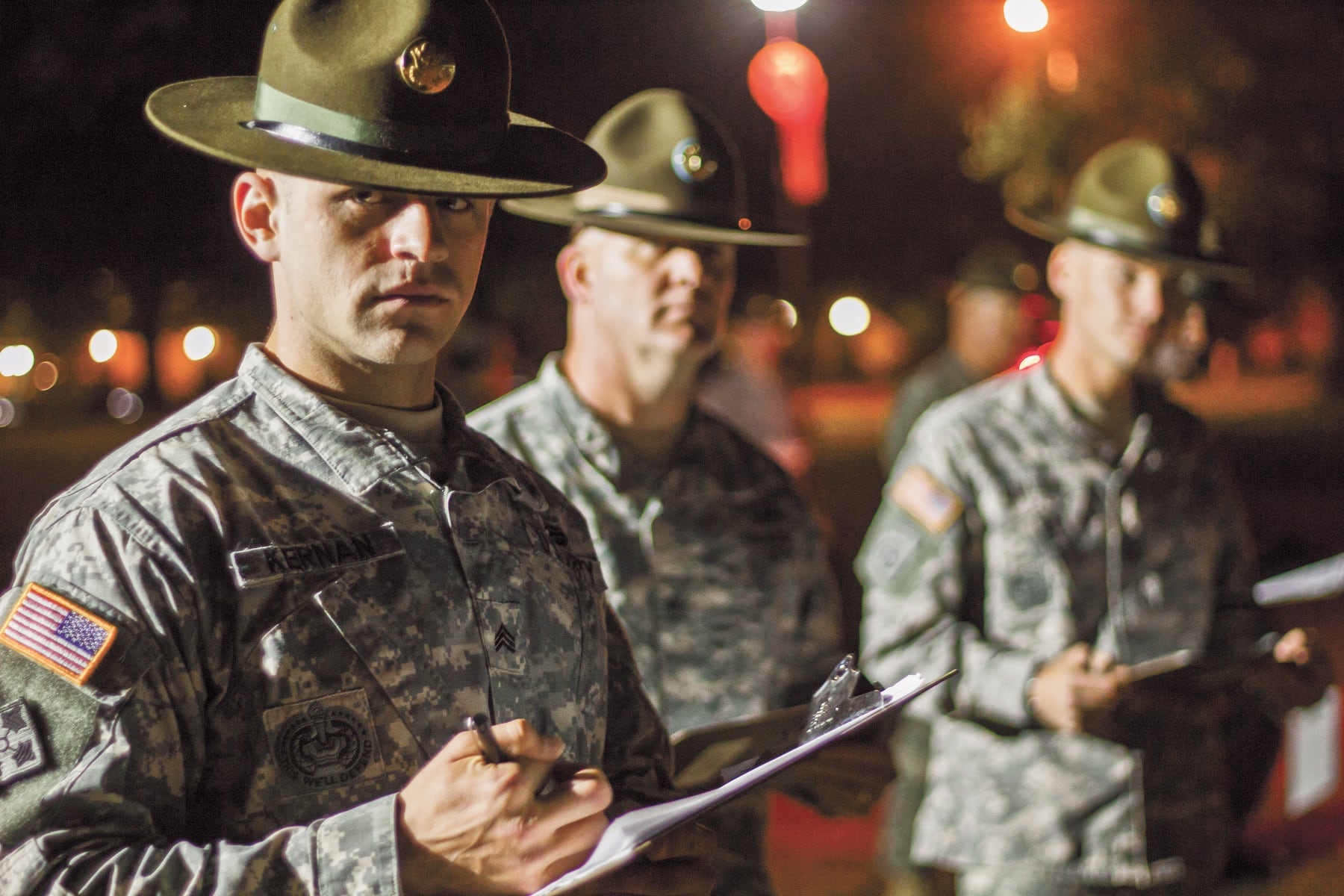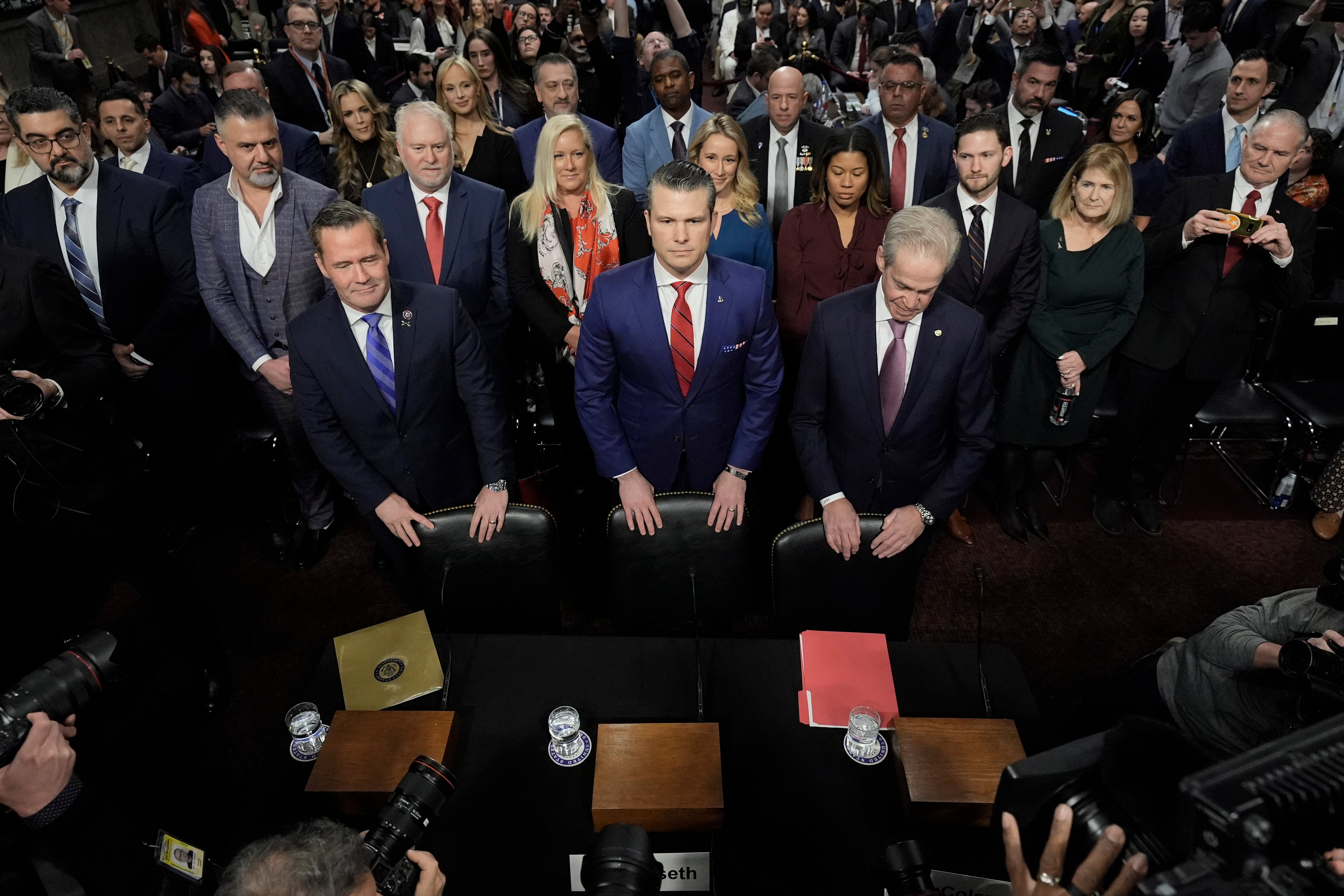For much of 2017, Army Training and Doctrine Command kept hinting that the advanced individual training platoon sergeant experiment was over.
As of Nov. 17, the Army has decided to bring drill sergeants back to AIT, after receiving a sign-off by Ray Horoho, the acting assistant Army secretary for manpower and reserve affairs.
“Currently, USACIMT is working with Department of the Army-level staff and other stakeholders to get all the required administrative pieces in place before implementation can begin,” Lt. Col. Jeffrey Pray, a spokesman for the Center for Initial Military Training, told Army Times. “However, we do expect drill sergeants to start transitioning to AIT in 2018.”
The move is part of a sweeping review at CIMT of the Army’s basic training program of instruction, begun last summer by new commander Maj. Gen. Malcolm Frost.
“I am trying to assess the enterprise through what I think is the No. 1 sphere of influence in that enterprise, and that is the drill sergeant and the AIT platoon sergeant,” he told Army Times in September.
RELATED

In the end, officials felt that drill sergeants — both their training and what they represent to new soldiers — would be the best stewards of competency and discipline at AIT.
Drill sergeants already run One Station Unit Training, which is offered for military occupational specialties such as infantry and military police and combines basic training and AIT.
AIT platoon sergeants have only existed for the past decade, TRADOC Command Sgt. Maj. Dave Davenport told Army Times in October, but it was time to re-think them.
“In basic training, the drill sergeant is the authority figure,” Davenport said. “And when we brought AIT platoon sergeants in to replace drill sergeants, it was really about them beginning the transition to the role of the noncommissioned officer.”
RELATED

But as it turns out, AIT soldiers could use the continuity of drill sergeants to cement their initial training until the end.
“In 14 weeks we have to transform them from their civilian ways — socialize them, is what I’m trying to say — into our culture, our values, our way of doing things,” he said. “And that drill sergeant can really drive that behavior, that process.”
Meghann Myers is the Pentagon bureau chief at Military Times. She covers operations, policy, personnel, leadership and other issues affecting service members.




